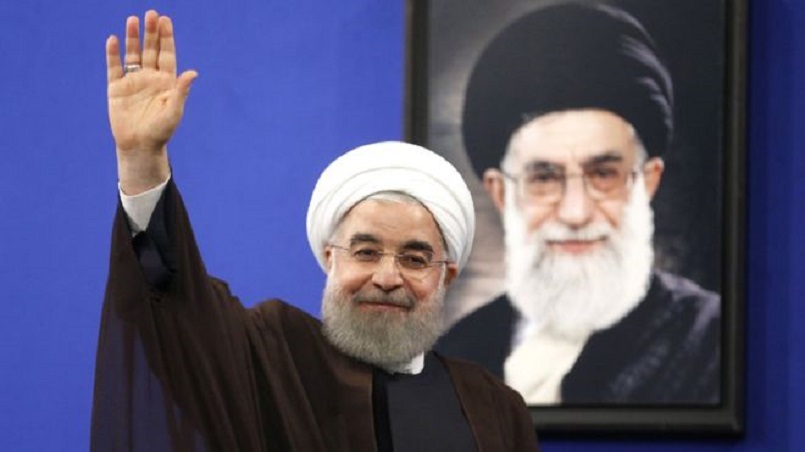
Moderate Iranian President Hassan Rouhani has said his re-election shows voters reject extremism and want more links with the outside world.
After avoiding a run-off with a 57% outright victory over his main rival, Mr Rouhani said he respected the opponents' right to criticise him.
Mr Rouhani, 68, supports the landmark deal to curb Iran's nuclear programme.
The decisive victory gives him a strong mandate to seek reforms and revive the country's ailing economy, analysts say.
"The Iranian nation has chosen the path of interaction with the world, a path which is distant from extremism and violence," Mr Rouhani said in first speech after the victory, broadcast on state television.
"The election is now over. I am the president of the nation and need assistance from every single Iranian, even those who oppose me and my policies."
Mr Rouhani also thanked former reformist President Mohammad Khatami, apparently defying a media ban on citing the ex-leader's name.
What were the results?
Turnout in the election was unexpectedly high, at around 70%.
And this is thought to have helped Mr Rouhani, who received close to 23 million votes out of the 40 million that were cast.
His main challenger, former prosecutor Ebrahim Raisi received 38.5%, or 15.7 million votes, not enough to take the election to a second round.
On Twitter, Iran's Supreme Leader, Ayatollah Ali Khamenei, said the election showed the "increasing progress" of the "Iranian nation".
Mr Khamenei said Iran would demonstrate "national dignity" and "wisdom" in relations with other countries.
There were celebrations in the capital, Tehran, with young people singing and dancing the central Vali Asr Square, despite efforts by police to move them, AFP news agency reported.
What are the challenges?
The economy seems to be the number one issue.
Average Iranians say they do not feel the economic benefits after international sanctions were lifted as a result of a nuclear deal signed between Iran, the US and other countries in 2015.
While oil exports have rebounded and inflation is back at single-digits, unemployment remains high, especially among the young people.
Mr Rouhani also promised a moderate vision and an outward-looking Iran and, at rallies, openly attacked the conservative-dominated judiciary and security services.
Another challenge, experts say, will come from abroad, and the relations with the new US government.
President Donald Trump opposes the nuclear deal which eased sanctions on the Middle Eastern country, but his White House renewed it earlier this week.
